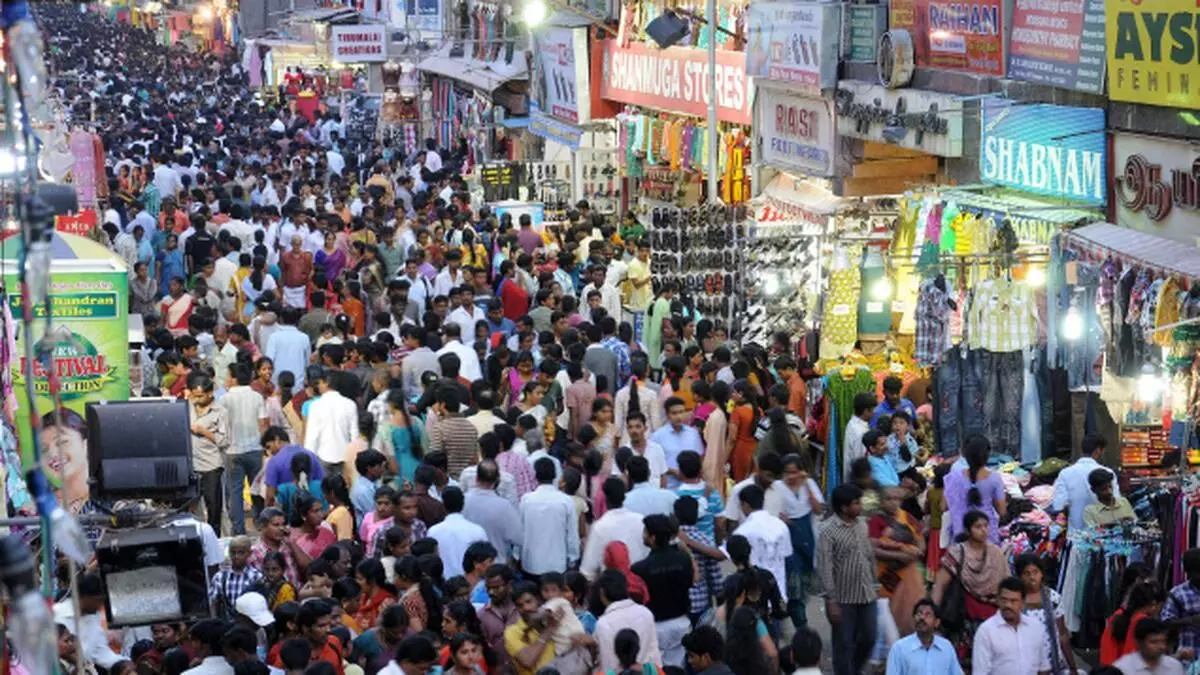Sectoral resilience fuels India's GDP growth despite global uncertainities
The 7.6% growth in Q2, although a touch lower than Q1, indicates a continued expansion in economic activities
image for illustrative purpose

Hyderabad: India's economic performance in the second quarter of the fiscal year has shown a moderate deceleration, recording a growth rate of 7.6%. While this growth figure remains robust, it marks a slight dip from the 7.8% growth witnessed in the first quarter. The country's GDP trajectory continues to reflect resilience amidst ongoing challenges both domestically and globally.
The 7.6% growth in Q2, although a touch lower than Q1, indicates a continued expansion in economic activities. This performance is attributed to a combination of factors including government stimulus measures, improved consumer spending, and a gradual recovery in several sectors post the pandemic-induced disruptions.
Factors Driving the Growth
Government Interventions: The Indian government's targeted interventions to boost various sectors have played a pivotal role. Measures such as increased infrastructure spending, policy support for manufacturing, and initiatives to promote foreign investments have contributed significantly to sustaining economic momentum.
Consumer Spending: Consumer spending, a critical driver of economic growth, has exhibited positive trends. With increased vaccination rates and a gradual easing of pandemic-related restrictions, consumer confidence has seen an uptick, reflecting in improved spending patterns across various sectors.
Sectoral Performance: Key sectors like manufacturing, agriculture, and services have shown resilience. Manufacturing, supported by robust domestic demand and export orders, has continued its upward trajectory. The agricultural sector, a backbone of the Indian economy, has remained steady, benefitting from favorable monsoon conditions.
Challenges and Concerns
Global Uncertainties: Despite the positive trajectory, the global economic landscape presents challenges. The resurgence of COVID-19 variants in some parts of the world poses risks to international trade and supply chains. Such uncertainties could potentially impact India's export-oriented sectors, which have been instrumental in the economic recovery.
Inflationary Pressures: Another concern is the persistent inflationary pressures. Rising commodity prices, particularly in the energy and food sectors, have contributed to inflationary trends, impacting consumer affordability and posing a challenge for policymakers in maintaining a delicate balance between growth and inflation.
Investment Climate: The investment climate remains a critical aspect for sustained growth. While there have been improvements in ease of doing business, attracting consistent and substantial investment remains vital for bolstering long-term economic prospects.
Future Outlook and Policy Implications
Despite the slight dip in growth from the previous quarter, India's economy continues to demonstrate resilience. Looking ahead, the focus remains on sustaining and accelerating this growth trajectory while addressing the prevailing challenges.
The government's proactive policy measures and continued support for key sectors are expected to bolster the economic recovery. Streamlining regulatory frameworks, enhancing infrastructure, and fostering a conducive environment for investments will be instrumental in maintaining growth momentum.
Conclusion
India's GDP growth of 7.6% in the second quarter reflects a steady pace of economic recovery. While the slight moderation from the previous quarter indicates some challenges, the overall trajectory remains positive. Effective policy interventions, resilient consumer spending, and sectoral performances have been the key drivers. Navigating through global uncertainties and addressing domestic concerns will be crucial in sustaining and amplifying this growth path, ensuring a robust economic outlook for the nation.

